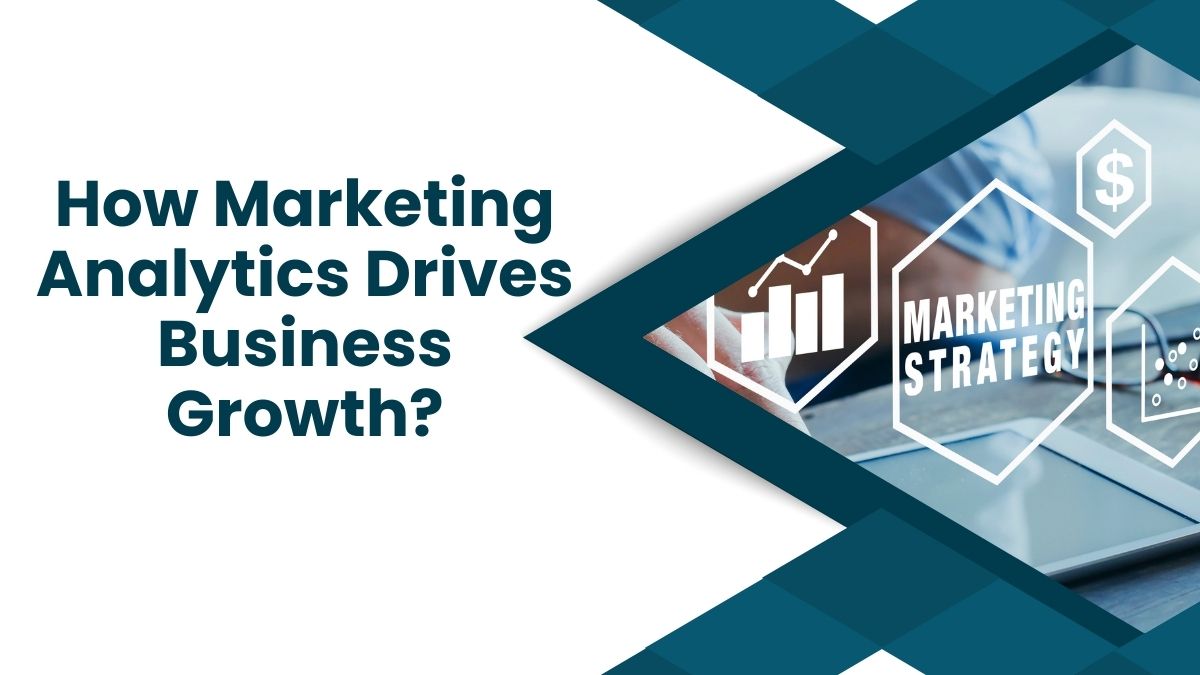Table of Contents
In today’s cutthroat business environment, an organisation must seek out, embrace, and capitalise on every possible opportunity. Via data-driven marketing, brands nowadays get large amounts of information that can be used to improve decisions, campaigns, and customer interactions. An exciting part of this picture is marketing analytics, which transforms data into insights for evolving strategies.
In today’s environment, where companies rely heavily on digital environments, analytics for marketing success is about building the fundamentals of campaign optimisation and customer behaviour. For all marketing executives, including chief marketing officers (CMOs), data analysis is not a luxury anymore; it is a necessity.
What is Marketing Analytics?
Marketing analytics is the science of using marketing metrics to determine the effectiveness of marketing strategies deployed and the ability to get the most from the investment made. It can include Web 2.0 information and information gathered outside the digital world. This means businesses can gain complete visibility of their target consumers, their choice-making process, and intuitive consumer touchpoints.
Also, data-driven marketing enables firms to use detailed customer information to design appropriate product promotion initiatives and experiences for different consumer groups. As a result, the promotional campaigns are often more successful. Starting from the analysis of brand sentiment and ending with the fine-tuning of the parameters of e-mail advertising, analytics is relevant to almost all sectors of the contemporary marketing process.
The Role of Marketing Analytics in Business Growth Strategies
At this point, if you’re wondering how exactly marketing analytics play a part in business growth strategies, here are some ways:
-
Personalised Customer Experiences
Marketing analytics allows businesses to capture customers’ preferred choices, activities, and purchasing patterns. This can allow companies to provide what can be referred to as hyper-personalisation, a factor that boosts customer satisfaction and brand affinity.
-
Optimising Campaign Performance
As the information is acquired in real-time, marketers can tweak their approach as the campaign progresses. Resistance also enables campaign optimisation, as analytics guarantees that every aspect, from ad spending to message positioning, is optimised.
-
Predicting Future Trends
One of the major advantages of data-driven marketing is that it allows marketers to be very predictive in their marketing. Since market behaviours and trends are used to predict future requirements, this is a key source of competitive advantage.
-
Resource Allocation and Budget Optimisation
Marketing analytics also assists in determining which channels, campaigns, or segments are most effective and, therefore, yield the highest return on investment. For example, through such insights, companies can better negotiate and match their expenses and revenues due to budgeting.
-
Enhanced Decision-making for CMOs
As strategic leaders, CMOs must rely on data to guide business growth strategies. Leveraging marketing analytics empowers them to align marketing goals with business objectives, ensuring that every effort contributes to long-term growth.
Implementing Analytics for Marketing Success
Success in analytics for marketing requires a structured approach, combining tools, talent and technology. Here are a few key steps:
- Data Collection and Integration: Capture customer interactions from social networking platforms, e-mails, websites, and offline media sources to create a consolidated picture of customers.
- Choosing the Right Metrics: Numbers, such as customer lifetime value, the rate of converting leads and consumers to customers, or the level of their engagement, are crucial to evaluating a campaign’s results.
- Using Advanced Tools: Programmes and applications available in the market, such as Google Analytics, Hubspot, and Salesforce, give businesses actual-time information for monitoring trends and performance.
- Developing a Skilled Team: A team with the right marketing analytical knowledge guarantees the right interpretation of the insight and any action taken to be appropriate.
Why Do CMOs Need to Embrace Marketing Analytics?
As businesses grow, so does the complexity of managing their marketing efforts. Chief marketing officers or CMOs, play a crucial role in driving business growth strategies through data and analytics. A deep understanding of marketing analytics allows them to anticipate market shifts, make data-backed decisions, and align marketing efforts with broader business objectives.
To gain the edge required in today’s fast-paced market, CMOs can benefit from enrolling in advanced learning programmes designed to hone their strategic marketing and analytics skills. One such programme is Imarticus Learnings’ Executive Certificate Programme for Strategic Chief Marketing Officers (CMO Program), which provides actionable insights on data-driven strategies, leadership, and marketing innovation.
Conclusion: Harnessing Data for Sustainable Growth
The power of marketing analytics lies in its ability to transform data into insights that drive smarter decision-making and sustainable growth. In a world dominated by information, data-driven marketing enables companies to stand out by delivering meaningful, personalised experiences and optimising every aspect of their campaigns. For businesses seeking success in today’s dynamic landscape, analytics for marketing success is no longer a luxury; it is a necessity.
By embedding analytics into core business growth strategies, companies position themselves for long-term success. With the right tools and training, such as the CMO program, marketing leaders can unlock the true potential of data, delivering results that drive both profitability and customer satisfaction.

